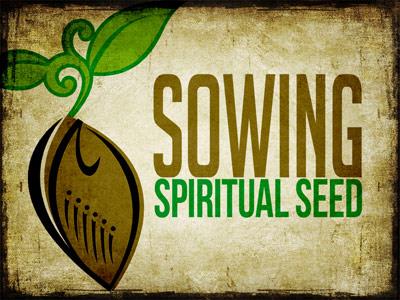-
You Can’t Cheat The Harvest!
Contributed by Anitha Jabastion on Oct 9, 2025 (message contributor)
Summary: There are many laws that govern our world - the law of gravity, the law of motion, the law of cause and effect. But Paul reminds us of another law, the spiritual law of sowing and reaping. It’s a principle that works silently, steadily, and surely. You can’t break it, you can only prove it true.
Introduction:
There are many laws that govern our world — the law of gravity, the law of motion, the law of cause and effect. But Paul reminds us of another law, the spiritual law of sowing and reaping. It’s a principle that works silently, steadily, and surely. You can’t break it, you can only prove it true.
Do not be deceived
Paul starts this verse with a warning - Do not be deceived
We live in an age where deception is common. And deception does not come through warning labels. It appears attractive, progressive or liberating, but its goal is to distort God’s truth.
From the very beginning, in Genesis 3, Satan’s tactic was deception.
He told Eve, “Did God really say...?”
He questioned God’s Word, twisted truth into confusion, and convinced her that rebellion was freedom.
And the same voice still whispers today.
We live in a time where the enemy uses the same old lie
People are told that they can redefine who they are, even their very identity — apart from how God created them.
Because people often deceive themselves into thinking they can live however they want and somehow escape the consequences.
They tell themselves:
• “I can live in sin and still enjoy God’s blessing.”
• “A little compromise won’t hurt.”
• “No one saw me, so it’s fine.”
God is not mocked
Paul continues - Do not be deceived, God is not mocked
You might deceive men, we can deceive ourselves too but you cannot deceive God. But God cannot be mocked. You can’t fool Him, bargain with Him, or bypass His principles.
When a person continues to sin thinking, “God will overlook it,” or uses grace as a license to sin, they are mocking God.
People see only our actions and hear our words but God sees our thoughts behind that. He knows our thoughts, words, and actions.
1. We reap what we sow
Paul further continues - for whatever a man sows, that he will also reap.
He gives the reason why God cannot be mocked. But God’s justice cannot be ridiculed.
Whatever a man sows, he will reap that.
We can’t plant thorns and expect roses to bloom.
You can’t sow bitterness and expect peace.
You can’t sow dishonesty and expect trust.
You can’t sow laziness and expect success.
You can’t sow sin and expect holiness.
In Job 4:8, Eliphaz says, “Those who plow iniquity and sow trouble reap the same.”
This is not a threat. It’s a principle. What you sow today, you will reap tomorrow.
Prov 11:18 – He who sows righteousness will have a sure reward.
Pro 22:8 – He who sows iniquity will reap sorrow, And the rod of his anger will fail.
2. Are We Sowing to the Flesh or to the Spirit?
Galatians 6:8 — “For he who sows to his flesh will of the flesh reap corruption, but he who sows to the Spirit will of the Spirit reap everlasting life.”
Paul makes it very clear that every seed has a nature. What you sow determines what you reap. You can’t sow to the flesh and expect to reap a spiritual harvest.
Sowing to the flesh means living to please our sinful nature — selfishness, pride, bitterness, lust, envy, or seeking recognition. Some help others but for their own recognition. When we sow into these things, we reap corruption: broken relationships, guilt, emptiness, and spiritual decay.
But sowing to the Spirit means living to please God — walking in obedience, faith, love, forgiveness, and humility. When we sow to the Spirit, we reap a harvest that lasts forever: peace, joy, righteousness, and the fruit of the Spirit.
The flesh always promises quick pleasure but brings lasting pain.
The Spirit often calls for sacrifice but brings eternal reward.
A farmer who keeps planting bad seed cannot complain when the harvest is poor — the harvest only mirrors what was planted. In the same way, our thoughts, actions, and motives are seeds that produce fruit, either of the flesh or of the Spirit.
Let’s ask ourselves daily:
• Am I sowing anger or kindness?
• Am I sowing pride or humility?
• Am I sowing selfish gain or kingdom purpose?
3. We reap how we sow
What we sow is important and also how we sow.
2 Corinthians 9:6 - the one who sows sparingly will also reap sparingly, and the one who sows generously will also reap generously.
Paul here was addressing the Corinthian church about giving — specifically, their contribution to help the poor believers in Jerusalem. Yet, the principle goes far beyond finances. It applies to every area of life where we plant spiritual seeds.
How a person sows - the attitude, spirit, and measure with which they sow determines the measure of our harvest.

 Sermon Central
Sermon Central



